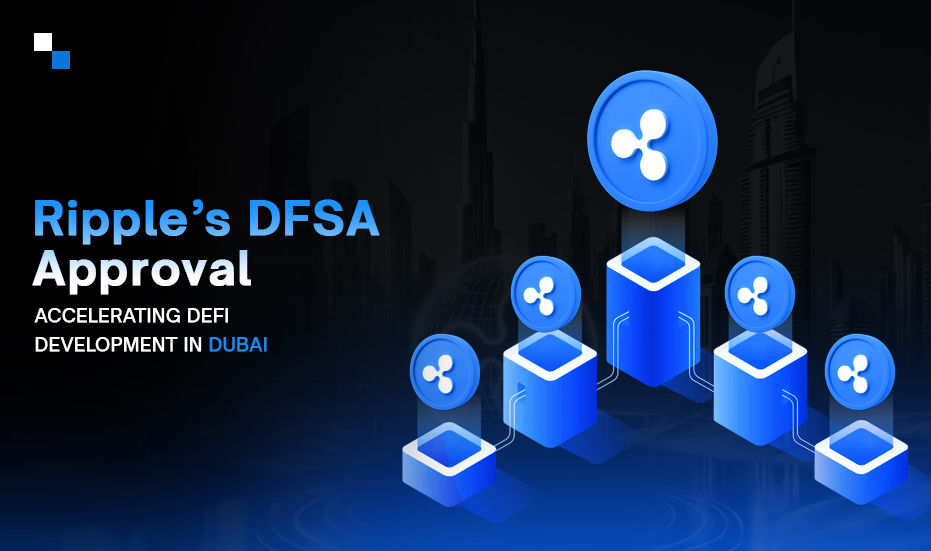Blockchain and cryptocurrencies have earned a big name among new-age investors in recent times. Bitcoin and Ethereum coin development gained huge popularity and adoption, which is clear from their market sizes that stand at billion U.S. dollars. Every day we find new exchanges, coins, and investors entering the crypto market.
It is also important to acknowledge the increasing popularity of CBDCs – Central Bank Digital Currencies. While most users confuse between the two, it is imperative to clarify the differences.
Crypto coins come in the form of digital currency and are popularly used for trading, holding, and storing an intrinsic value and exchange as a currency. They are based on blockchain technology and are not government-regulated. They use digital ledgers to register transactions that are built over cryptography. Therefore, whenever someone mentions ERC20 token development, they mean a cryptocurrency.
On the other hand, a CBDC or Central Bank Digital Currency is governed by the central bank or any federal agency. The policies, rules, and basic infrastructure to trade in CBDC are all under the control of the federal government.
Source of Value Generation
Cryptocurrencies have a different nature than CBDCs, where one of the major differentiating factors is the source of money being circulated. Fundamentally, digital currencies issued by central banks are versions of private money that are issued under strict rules and regulations.
Stablecoins pegged to fiat currencies such as the USD on a one-to-one basis are also good for cryptocurrencies. Instead, a private corporation or entity issues stablecoins and other cryptocurrencies rather than a government agency. When comparing cryptocurrencies to central bank digital currencies, blockchain-based CBDCs have the upper hand.
This versatile platform of CBDCs allows fiat currency issuance operations to be combined with blockchain technology. CBDCs are an enhancement over present fiat alternatives, in essence. Cryptocurrencies such as Stablecoin, on the other hand, are a form of privately issued money.
Ownership and Accessibility
Crypto coins are distributed on a decentralized network and are available for exchanging, holding, and storing values. The CBDCs are issued by Government banks and are distributed on a controlled network. They are accessible to limited users and are meant for either normal currency transactions or specific tasks.
Sometimes these CBDCs are utilized by federal banks to perform the development work, support special public groups, and deliver better governance through digital means. They do not fluctuate and are used in specific transactions.
Value of Digital Assets
We know that Crypto coins are speculative in nature and they either inflate or deflate due to market dynamics. CBDCs always maintain an intrinsic value and do not fluctuate frequently. Their movement depends on the government’s treasury value and fiat currency prices.
Get a Free Demo to Develop Your ERC20 Token
Schedule Free DemoCreation of Digital Currency
In cryptocurrency, the users create digital currency based on an algorithm that is developed through consensus and is based on the principle of a democratized economic system. Cryptocurrency is developed on a decentralized platform where each member is having parity with others in terms of authority. CBDCs are developed on the principle of centralized, controlled, and governed currency that is managed by a central entity like a federal bank.
Basis for Predictive analysis
A crypto coin’s value can fluctuate based on various factors including demand and supply, speculative buying and selling, and other reasons. For example, in early 2021, Elon Musk’s tweet resulted in massive fluctuation in Dogecoin’s value. Later when he clarified it was a joke, prices tumbled. It requires highly sophisticated Bots and software to predict and take buy or sell actions in cryptocurrency
CBDCs are based on the government treasury and the value of fiat currency in foreign exchange markets. Government policies, Foreign Investments, and GDP growth may put effect over CBDCs but they do not fluctuate with great volatility. They are easy to predict and more stable when compared to crypto coins.
Control on Issuance
Cryptocurrencies are issued in a limited number and rely on their user base. CBDCs are minted by the central bank on the basis of its demand and regulatory framework. Although the central bank also keeps a tab over the issuance of the CBDCs, it is always free to issue more currency in the advent of specific events.
Purpose of Possession
Crypto coins are always hot in demand due to the effect of rarity and hope for cumulative growth in the future. As already mentioned, Ethereum coin development became a rage in a matter of few years, thereby fuelling blockchain adoption across sectors. Investors use software and crypto exchanges to make quick buy and sell decisions. They like to invest with the motive of capital appreciation. In CBDCs, there is no motive for accumulating the currency as it sees very little fluctuation over the years and there is no point in using it as an investment solution.
Anonymity in Buying and Selling
Buying and selling crypto coins is done without revealing the real identity of the investor. However, in the case of CBDCs, the identity of the buyer or seller is open because the central bank controls every transaction on its network.
Conclusion
CBDCs and cryptocurrencies are competing with each other. It doesn’t mean the end of any one of them. The world will further embrace digital currencies and that means there’s an equal opportunity for both currency types.
If you are looking for ERC20 token development or CBDC development, Antier can help you with both. We offer a full spectrum of coin/token development solutions – ranging from token conceptualization and design to development, deployment, and launch. We also offer white paper creation services to help you communicate your idea to your target audience. Our finance and technical experts together deliver a solution in line with your requirements – whether it’s a crypto coin/token or CBDC.
Schedule a free demo of one of our offerings or connect with our subject matter experts to share your business needs.





